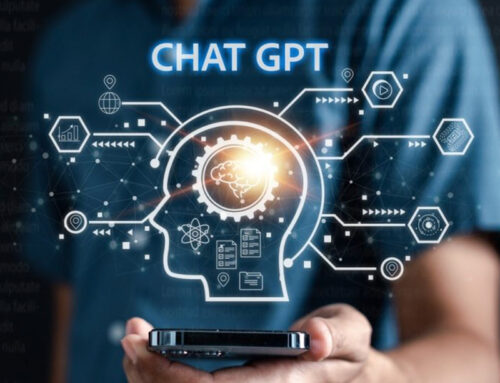Dr. Damian Goldvarg is a global consultant and executive coach that has worked over 30 countries in most continents for the last twenty years. Tonight he will address you as an audience of managers working for different businesses in the project #1 from the Professionally Speaker Manual. The name of his presentation is: how to develop a global mindset
- Do you enjoy having new experiences, meeting new people, and going to new places?
- Are you confortable dealing with uncertainty, ambiguity and the “unknown?
- Are you curious and enjoy learning?
- Do you consider yourself flexible and easy to adapt to new circumstances?
- All of these are the key elements of a global mindset but what is a global mindset?
Mr. Toastmaster, fellow toastmasters, guests:
Tonight, I will define what is a global mindset, with its three elements, share some personal examples and suggest you some ideas on how to develop a global mindset.
What is a global mindset?
According to Webster dictionary the mindset is the mental attitude that determines how you will interpret and respond to situations. We can use the metaphor of glasses. If you have blue glasses you see everything blue. But you may forget you have your glasses on.
Global mindset is the ability to think as if the world is your home. It is your awareness and openness to include global trends and sensitivity when making decisions.
Global mindset is about thinking globally.
When you think globally, you are able to develop better communications, relationships and understanding among colleagues, customers and world partners.
As a manager if you don´t think globally you may get behind.
The three key elements of the global mindset are: the intellectual capital, the psychological capital and the social capital. I will repeat them: The intellectual capital, a psychological capital and a social capital. They feed each other and overlap with each other.
The Intellectual capital: is the ability to learn, understand information and gain knowledge.
It includes: Being global business savvy: knowing the global trends, competitors, keeping track of new technology. Cognitive complexity, being able to analyze information and integrate it to what you already know.
The Psychological capital: is the ability to be open to differences and your ability to change and adapt. It includes:
- Passion for diversity, curiosity about people who are different
- Love for adventure, willingness to try new things and
- Self-assurance, not feeling threaten by others who are different.
The social capital is the ability to collaborate with others. It includes:
- Intercultural empathy, willing to understand others
Interpersonal impact, building networks, develop, consensus
Diplomacy: ability to listen, relate to others with tact.
A few years ago, I had to teach a leadership skills class in Rosario, Argentina for John Deere, the tractor company. Rosario is the third biggest city in Argentina and is located 200 miles from Buenos Aires.
I was teaching this class at a plant that manufacture tractors and I have been doing this same program for the same company in the US, Mexico, and Brazil. Most participants were men and engineers.
During the presentation, I usually made a joke about how engineers saw everything black and white when they have to make decisions. I had done the joke many times and people would always have a good laugh. But this time a guy in his sixties stood up and started screaming at me, telling me how I had the audacity to make a joke like that, how my joke was an insult and kept going on and on about how I needed to be more respectful and sensitive in my comments.
I was surprised and speechless. I only was able to apologize. I told that my intention was just to make a joke and never thought that the joke would be consider an insult. I was going to tell him I had make that joke in the US, Mexico and Brazil but decide not to say anything else. The room was in total silence. After I apologized for second time I decided to keep going with the class.
I was very surprised by his reaction. I am always very careful of working with people from different cultures and backgrounds. Who would say that I will be misunderstood in my own country of origin? During the break a few participants came to me to tell me the guy had some mental health issues and not to take too personally his comments. But it was late, I felt really awful. Do you think I made the joke again? Never. You may have a chance to get a crazy guy from time to time anywhere in the world regardless of your culture but it is better “prevenir que curar”, to prevent that to cure.
The learning from this story is that I am very careful when making jokes to avoid misunderstandings.
Applying my intellectual capital I was able to understand that he may have a different interpretation o my intentions. I apologize, applying my social capital helped me to empathize with the person, clarify my intentions and move on.
I was attending a coaching conference in Orlando, Florida with people from all over the world. I volunteered to facilitate a group discussion and there were 15 tables with one facilitator at each table to discuss some questions after a key note speaker presented on the issue of coaching and diversity. Our job was to facilitate and take notes to make a report at the end of the session. We ended we less participants that expected and some tables were empty so the facilitators moved to other tables with more people.
In my case, I had my table full of people so another facilitator joined me at my table. Since we were two facilitators I suggested her to split the tasks and asked her which task she preferred between facilitating and taking notes. She chose to take notes and asked me to facilitate the discussion. Five minutes later a Belgium colleague, who was also a facilitator but did not got a enough people at her table, joined us in our discussion on diversity in coaching. We had a very interesting conversation and five minutes before ending she said: “And talking about diversity we just have here another example of a diversity concern, a Latino macho is facilitating and give the women the task of taking notes”. After she finished talking I was all red and extremely angry but my colleague at the table explained her that she had chosen to take notes. My colleague apologized and I was glad I did not open my mouth in a state of anger. I decided to say, “sometimes we find what we look for”! This story taught me that we need to stop and reflect when we feel that we are being misjudged. Reacting in this example would have not been helpful.
Applying my intellectual capital, I was able to understand her prejudice, applying my psychological capital I was able to not to react and wait until I felt better and applying my social capital helped me to avoid making a negative comment that could hurt the relationship.
Another story.
I had to go to work to India to teach a management class for mangers of a global IT company. I have never been in India or had done work with Indians. My experience had been mainly from calls over the phone to help me with getting my tickets or technical support for my computer. What happened when I talked to them? I had difficult times understanding their accent… Between their accent and my accent communication was challenging!
Before going to India to work I was somewhat nervous. I read articles about Indian Culture and watched movies, and went to restaurants and learned a great deal such as the difference in the culture between the south and north of India.
When I got there, that “homework” helped me to be more relaxed. I bought Indian music and I put it before the training so people were surprised that a “foreign” consultant was enjoying their music. Doing all of these things helped me to prepare, build trust with my clients and interestingly, I never had problems with the accent, I was able to understand all of them because they were professionals and I learned that most customer service employees not necessary had high levels of education to do their job and their English was limited.
Interestingly the challenge came from a different place. During the first part of the program I sensed participants were disengaged and disappointed with me in some say but was not sure why, When they asked me an opinion about a managerial practice I said that my opinion was just mine and there are other opinions. When I asked the person from human resources explained to me that people did not like that because these managers saw me as an expert and I should have told them what to do instead of telling them they knew better. Not doing that, created lack of credibility. After the break, as a result of receiving feedback from the human resources representative was able to present a much more “authoritative” presence that works better for this group of young professionals. This is a good example of adaptation, find out what people needed from me to gain the credibility and respect needed to building the relationships and collaborating effectively.
I would finish with some ideas on how to develop a global mindset.
Intellectual capital: the easiest to develop from the three.
Developing your ability to integrate new information. Reading books, newsletters, participating in cultural activities, trips. Participate in professional organizations. Most professional organizations, have some activity in the area of global business.
For example, when I travel I read the local newspapers. I talk to people from the region to get advise. I gather information to learn about the people I will be working with.
Psychological capital The most difficult to develop
How do you feel about people, places and things that are foreign to you? Do I need to change my feelings in any way? What is in it for you?
Passion for diversity, interest in international movies, restaurants. When I travel I always ask to eat local food.
Social capital, it is your ability to de develop intercultural empathy, participating in global teams and collaborating with people we don’t know from different cultures.
As managers, we need to develop new habits, new skills and new ways to work globally if we want to be successful. Remember working Globally is not longer defined as where you do business but how you do business. How do you do business.






